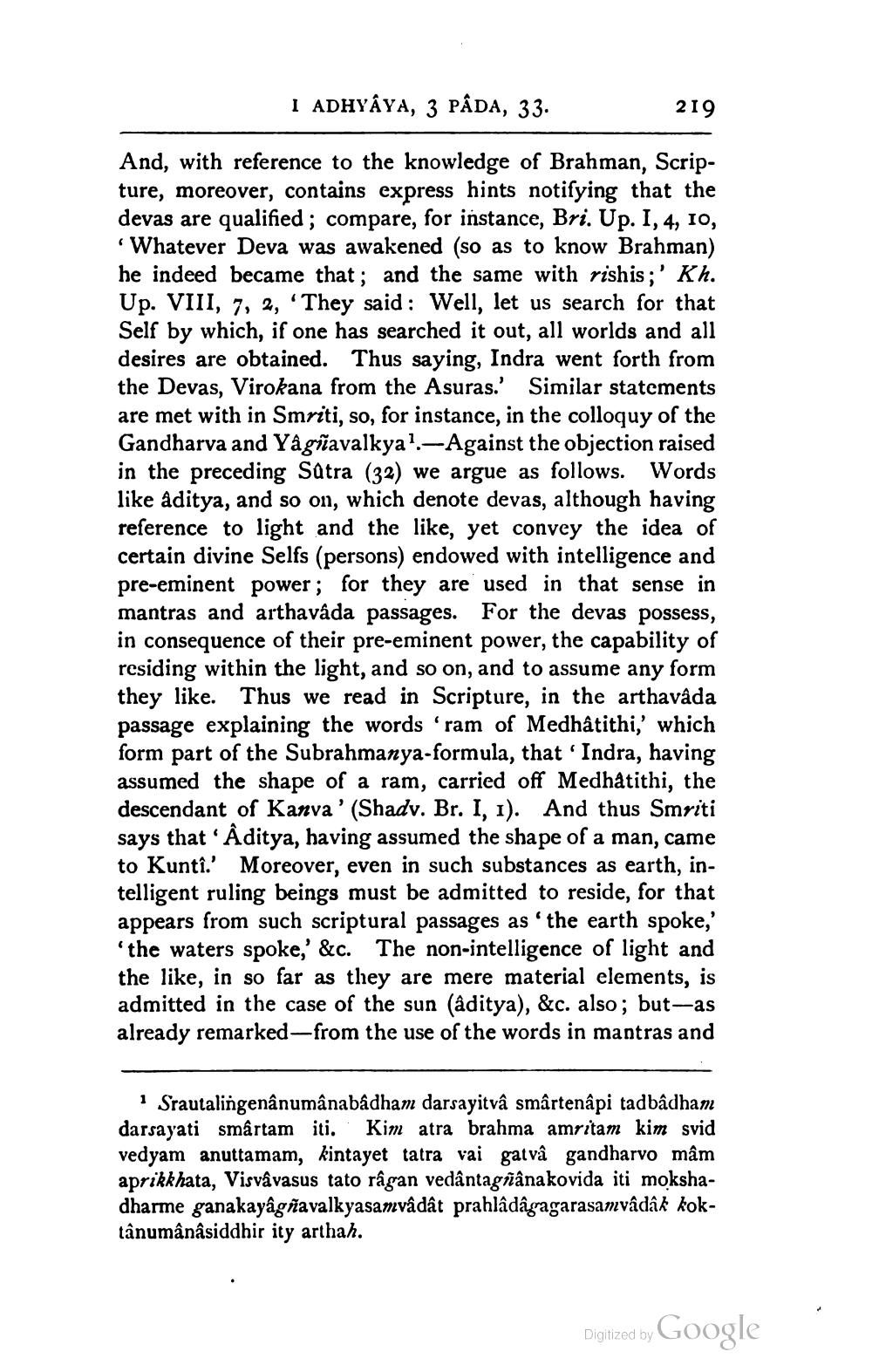________________
I ADHYAYA, 3 PÂDA, 33.
219
And, with reference to the knowledge of Brahman, Scripture, moreover, contains express hints notifying that the devas are qualified; compare, for instance, Bri. Up. I, 4, 10,
Whatever Deva was awakened (so as to know Brahman) he indeed became that; and the same with rishis;' Kh. Up. VIII, 7, 2, ‘They said : Well, let us search for that Self by which, if one has searched it out, all worlds and all desires are obtained. Thus saying, Indra went forth from the Devas, Virokana from the Asuras.' Similar statements are met with in Smriti, so, for instance, in the colloquy of the Gandharva and Yågsavalkya?.-Against the objection raised in the preceding Sutra (32) we argue as follows. Words like aditya, and so on, which denote devas, although having reference to light and the like, yet convey the idea of certain divine Selfs (persons) endowed with intelligence and pre-eminent power; for they are used in that sense in mantras and arthavada passages. For the devas possess, in consequence of their pre-eminent power, the capability of residing within the light, and so on, and to assume any form they like. Thus we read in Scripture, in the arthavada passage explaining the words 'ram of Medhâtithi,' which form part of the Subrahmanya-formula, that. Indra, having assumed the shape of a ram, carried off Medhatithi, the descendant of Kanva' (Shadv. Br. I, 1). And thus Smriti says that. Aditya, having assumed the shape of a man, came to Kunti.' Moreover, even in such substances as earth, intelligent ruling beings must be admitted to reside, for that appears from such scriptural passages as the earth spoke,' 'the waters spoke,' &c. The non-intelligence of light and the like, in so far as they are mere material elements, is admitted in the case of the sun (âditya), &c. also; but-as already remarked-from the use of the words in mantras and
1 Srautalingenânumânabâdham darsayitvå smartenâpi tadbâdham darsayati smärtam iti.Kim atra brahma amritam kim svid vedyam anuttamam, kintayet tatra vai gat va gandharvo mâm aprikkhata, Visvavasus tato râgan vedântagñânakovida iti mokshadharme ganakayâgñavalkyasamvâdât prahlâdâgragarasamvadak koktânumânâsiddhir ity arthah.
Digitized by Google




